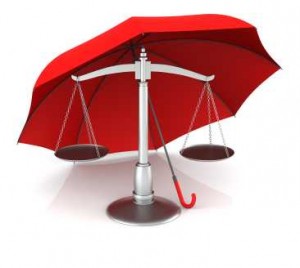 Written by Charleston Bankruptcy Lawyer, Russell A. DeMott
Written by Charleston Bankruptcy Lawyer, Russell A. DeMott
When people starting thinking of bankruptcy, they wonder about whether their property will be taken. “Will they take my house? Will they take my car?” they ask.
That’s where exemptions come in.
What are exemptions?
Exemptions are laws which allow a debtor to protect a certain amount of property from his creditors. They vary from state to state, and each state has them.
Also, in bankruptcy, the Code allows states to “opt out” of the bankruptcy-specific exemptions in section 522. That means that if you file in some states, like Michigan, you can pick either the Bankruptcy Code’s exemptions or that state’s. Michigan has not opted out. In other states, like South Carolina, the legislature has opted out of the federal exemptions. That means that you cannot claim the Bankruptcy Code’s exemptions, only those allowed under South Carolina law.
South Carolina
South Carolina exemptions are fair. The legislature drastically increased the homestead exemption in 2007 and for all other forms of property in 2008. These increases were the result of the legislature’s concern that the new, 2005 Bankruptcy Code would make it harder for South Carolinians to obtain debt relief. Prior to these revisions, property exemptions had remained unchanged for 30 years. (As I sometimes joke, before 2007 South Carolina didn’t have exemptions.)
In my bankruptcy practice, I’ve reviewed exemptions from all over the country. Some states hardly have exemptions. I’ll pick on Virginia, for example, where legislators have done a poor job at protecting their constituents from creditors. In Virginia, residents can only protect $5,000 in equity in their homes, but can protect $6,000 in a equity in a motor vehicle. (Who thinks this stuff up anyway? Maybe people in Virginia should live in their cars?) In South Carolina, by contrast, residents can protect $56,150 in home equity (effective July 1, 2012), and the number–wisely–is tied to cost of living so that it’s adjusted every two years. (Note that this amount is per debtor, so married co-owners double the amount.)
Why are some states so stingy?
When I see states with really stingy exemptions, it puzzles me. I can’t imagine why state legislators don’t do more to protect their constituents in these states. Sure, I can see why they must balance the needs of debtors to protect property from their creditors with creditors’ interests in collecting on debts, but the reality of the situation is that in most bankruptcy cases I file, the bulk of the creditors are from outside South Carolina. This is typically the case for mortgage lenders, auto finance companies, and most certainly credit card issuers (think Bank of America, American Express, and Chase just to name a few.) Why don’t legislators wake up and start protecting the voters they were elected to represent over mainly out-of-state creditors?
Answer is….
First and foremost, general cluelessness. This issue isn’t sexy. It’s not a crime bill, for example. And those constituents typically affected are not politically organized. They may vote, but there’s no American Association of Debtors! By contrast, do something which affects senior citizens, and you’ll quickly learn that there really is an AARP (American Association of Retired Persons.) In short, debtors have little, if any, political voice. The issue isn’t on the radar.
During the next few posts, I’ll discuss South Carolina exemptions and also the law concerning who gets to claim South Carolina exemptions in bankruptcy. I’ll also discuss the two-year rule and what happens if you can’t claim South Carolina exemptions but live in South Carolina when you file bankruptcy.




Great blog. I like your whole web site. It is a great one.
Thanks, Lee. Glad you like it.